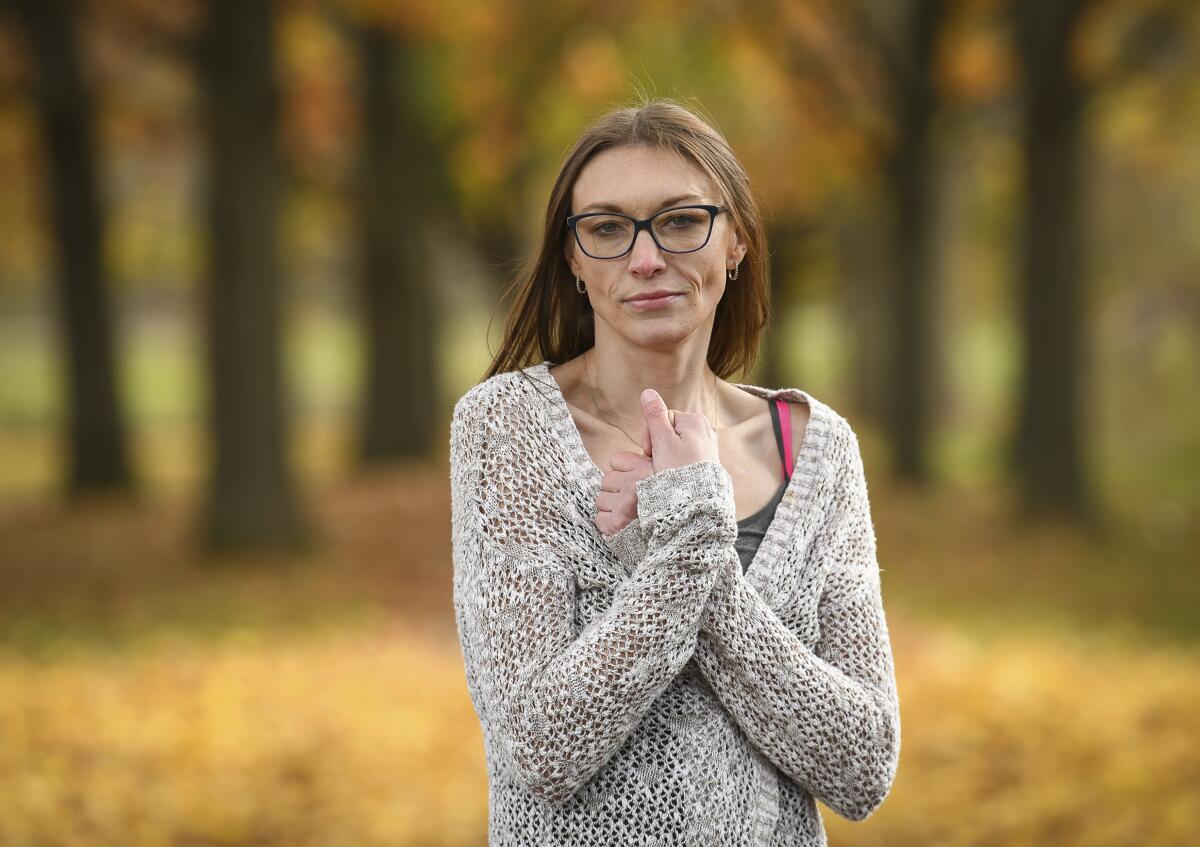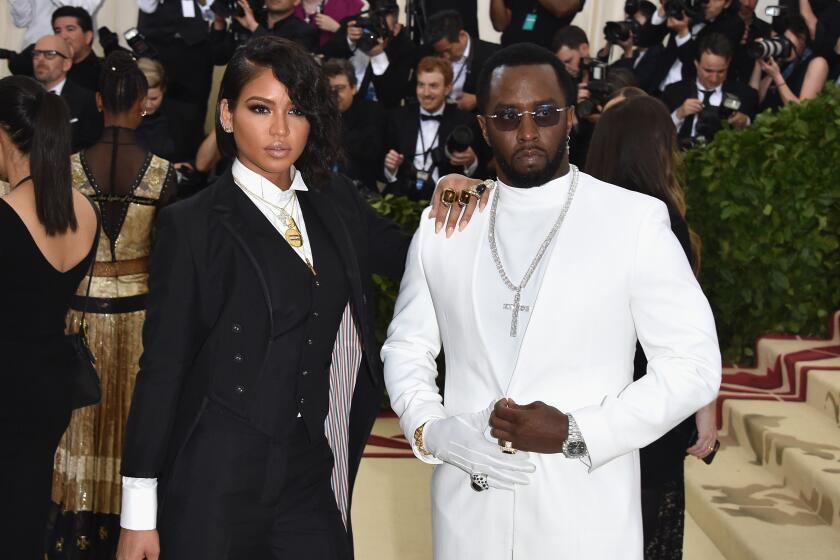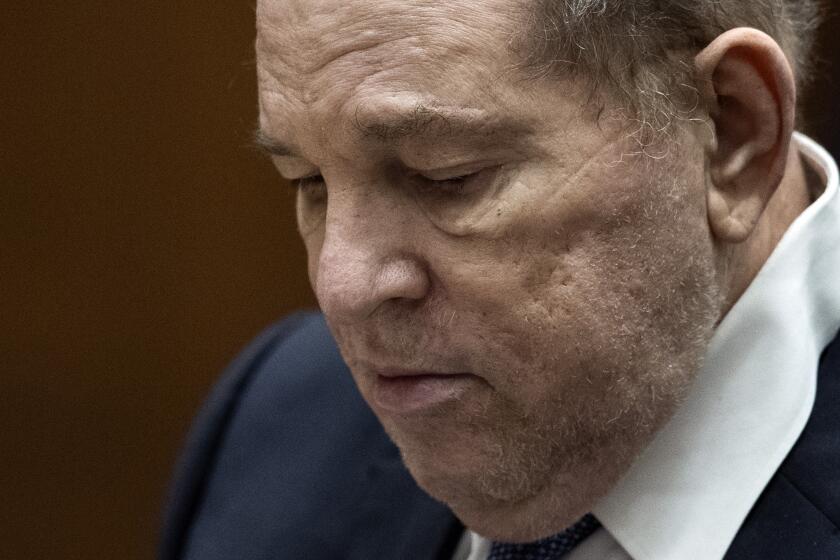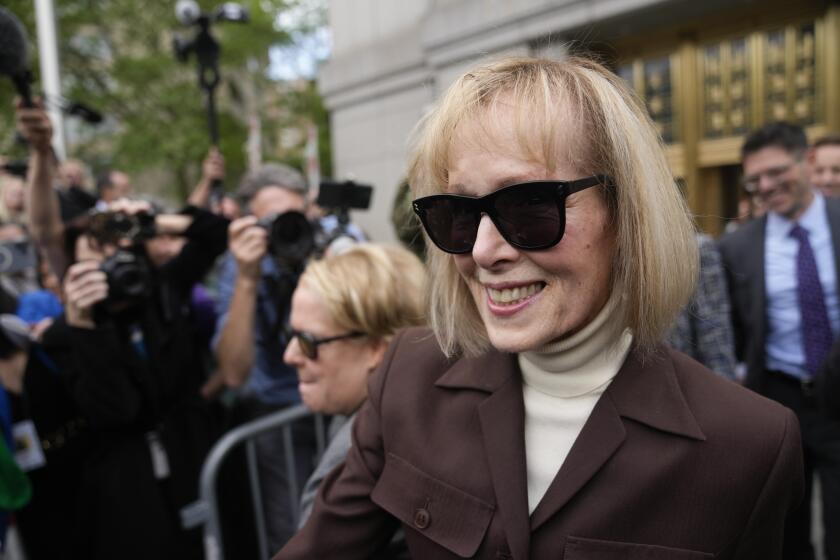The Adult Survivors Act, soon to expire, launched over 2,500 sex abuse suits

ALBANY, N.Y. — For a year, a special New York law has cleared the way for a wave of headline-grabbing lawsuits against famous men accused of sexual misconduct, including former President Trump, hip-hop mogul Sean “Diddy” Combs and comedian and actor Russell Brand.
But the Adult Survivors Act, which expires after Thanksgiving, also led to a multitude of legal claims by women who say they were sexually abused while serving time in New York’s prisons and jails.
More than 2,500 lawsuits have been filed under the law, which created a year-long suspension of the usual time limit to sue over an alleged sexual assault.
Some of those lawsuits have targeted employers or institutions such as hospitals, accusing them of failing to do enough to stop abuse by doctors or other employees. But a large majority have been filed against the state, New York City and local counties, and involve allegations of abuse at state prisons and local jail systems.
Many alleged victims say the lawsuits provide an opportunity to finally be heard.
Hip-hop mogul Sean ‘Diddy’ Combs is accused of rape, abuse, sex trafficking and more by former partner Casandra Ventura, a.k.a. Cassie, in a new lawsuit.
“For so long, I didn’t have a voice. And it didn’t matter, I thought. Like, who was I?” said Alexandria Johnson, who says she was raped multiple times while incarcerated in state prison and a New York City jail. “I have to keep going forward with this because it matters. ... There’s so many stories, so many, not just mine.”
After Thursday, people will once again be barred from suing over abuse that happened many years ago.
New York was one of several states to revisit laws in recent years that set time limits for civil legal claims stemming from sexual assaults, though usually for people abused as children.
Advocates say that New York’s current window has given traumatized adults a chance to seek accountability from big institutions and powerful men who could otherwise use their wealth or position to shield themselves.
“The reason we fought so hard for this bill is because trauma takes time,” said Liz Roberts, chief executive of the nonprofit victim services agency Safe Horizon.
Precise counts for Adult Survivor Act filings were not yet available, but there were at least 2,587 electronic filings in state courts, with some suits filed on behalf of multiple people. More than half of those filings were prison-related claims against the state. Hundreds more named New York City’s corrections department.
Sean ‘Diddy’ Combs and former partner Cassie have reached a settlement in a lawsuit she filed Thursday alleging rape and a ‘cycle of abuse’ by the mogul.
The act was modeled after a previous state law that gave people abused as children a temporary window to file claims. By the time the Child Victims Act’s two-year window closed in 2021, almost 11,000 people had filed suits, many involving the Roman Catholic Church.
Gov. Kathy Hochul said the initial law “forgot” people who suffered the same type of abuse as adults. She signed a new law opening a one-year window for adult survivors on Nov. 24, 2022 — and a series of high-profile lawsuits followed.
One of the first was against Trump. A jury in May found the former president liable for sexually abusing writer E. Jean Carroll in 1996 and awarded her $5million. Trump has denied the allegation.
Harvey Weinstein was sued last month by actress Julia Ormond, who accused the former film producer of sexually assaulting her in 1995 and then hindering her career. Weinstein has been convicted of rape in New York and California. He denied Ormond’s allegations through his lawyer.
Harvey Weinstein was convicted of multiple charges of sexual assault and cleared of others, closing out a significant chapter in the #MeToo movement that saw the former Hollywood mogul’s career collapse under a wave of abuse allegations.
Music executive Antonio “L.A.” Reid was sued by Drew Dixon, who worked for him when he was chief executive of Arista Records. She says he sexually assaulted her twice in 2001, once on a private plane. No attorney for Reid was listed in electronic filings.
Combs was accused in a suit by R&B singer Cassie last week of subjecting her to a long-term abusive relationship that included beatings and rape. The two artists announced a settlement a day after her filing. Combs denied the allegations.
Brand was accused in a suit of sexually assaulting a film extra during the making of “Arthur” in 2010. British media outlets published claims in September by four women who said they were sexually assaulted by Brand. He says his relationships were “always consensual.”
Another lawsuit accuses Bill Cosby of sexually assaulting a young comedy writer more than 50 years ago. Joan Tarshis initially made the lawsuit’s allegations against Cosby in 2014.
A Cosby spokesperson did not address the specifics of Tarshis’ claims, but asked of the recent suits against famous men: “When is it going to stop?”
The Associated Press does not typically name people who say they were sexually assaulted unless they consent to being identified or decide to tell their stories publicly, as Carroll, Ormond, Dixon, Tarshis and Cassie have done.
New York jury finds Donald Trump liable for sexually abusing writer E. Jean Carroll and orders the former president to pay her $5 million.
Many more lawsuits allege assaults by relatively unknown people at everyday locations.
One woman said in a lawsuit against a spa that she was fondled by a masseuse. Another, who worked checking in airline passengers, sued her employer on allegations that she was abused by a manager.
But the many lawsuits alleging assaults behind bars illustrate what lawyer Adam Slater called a “widespread and systemic” issue of assaults on inmates. His firm said it made more than 1,200 filings alleging abuse in state prisons and more than 470 alleging abuse at New York City’s Rikers Island complex.
Anna Kull, who represents Johnson, expects to file up to 600 cases related to assaults in prisons and jails, citing “a staggering amount of cases where male correctional officers were sexually assaulting female inmates.”
Johnson’s suit against New York City says she was raped in her Rikers Island cell by four corrections officers in 2014 while being held for a parole violation on a drug charge.
In a separate claim against the state, she says she was raped several times by a guard in 2015 at a state prison north of the city while she was pregnant. The lawsuit says the last assault caused her water to break prematurely and led to the loss of her baby.
Johnson said she still struggles with the trauma.
“I had big dreams — hopes of us going to the nursery and me getting out and raising my son and getting my life together,” she said. “They took that from me.”
Lawyers for the state and city have denied Johnson’s allegations in court filings and have sought dismissal of her lawsuits. The city and state corrections departments separately said they have a zero-tolerance policy for sexual abuse.
Dozens of suits have also been filed over the last year against medical providers by people who say they’ve been abused by doctors.
Lawyer Mallory Allen is representing more than 100 men who say they were sexually assaulted by Dr. Darius Paduch, a New York-area urologist who specialized in male reproductive health. Paduch also faces criminal charges accusing him of abusing patients.
James O’Connell, a former patient, said he sued a hospital system over alleged abuse by Paduch after seeing a law firm’s TV ad seeking potential plaintiffs. He hopes his action helps bring change.
“I have nephews. I have a son,” O’Connell said. “If I can do something to make sure that there’s a far lesser chance of anything like this ever happening to them, then I’ll do whatever I need.”
More to Read
Sign up for Essential California
The most important California stories and recommendations in your inbox every morning.
You may occasionally receive promotional content from the Los Angeles Times.













